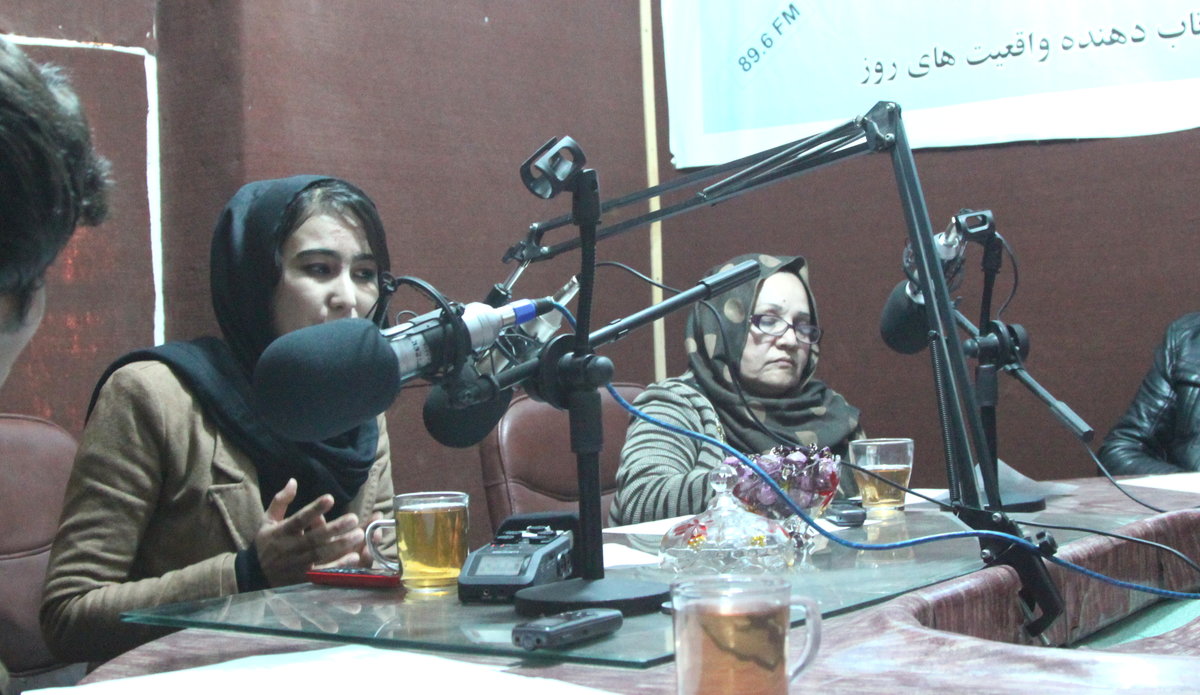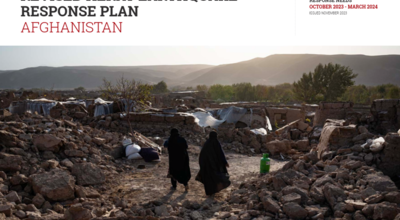UN-backed radio debates address gender-based violence in Afghanistan’s northeast
KUNDUZ - Raising awareness about gender-based violence, and strategies to eliminate it, was the aim of a series of UN-backed radio debates in the country’s northeastern provinces.
Supported by the UN Assistance Mission in Afghanistan (UNAMA) as part of the global 16 Days of Activism against Gender-Based Violence campaign, the debate series ran between 27 November and 4 December, involving local radio stations in Kunduz, Takhar, Badakhshan and Baghlan provinces.
The studio-recorded programmes – put together by UNAMA, local radio stations and provincial women’s affairs departments – featured rights activists, government officials and religious scholars. The panellists focused their debates on the situation of women in the northeast and ways to improve women’s lives through the implementation of Elimination of Violence Against Women (EVAW) legislation.
In the northeast region of Afghanistan, as in other areas of the country, Afghan women and girls continue to face many challenges, including domestic violence and early marriage, among others. While, on the whole, the northeast region is less conservative than some other areas of the country, under-representation of Afghan women in government and social life continues to be a notable issue.
Nasiba Holkar, director of the Kunduz Department of Women’s Affairs, said during one debate that law enforcement is a fundamental component in reducing violence against women. “So far, the enforcement of EVAW has brought significant improvements in the lives of Afghan women, although its implementation in insecure areas is still a big challenge,” she said.
Malalai Saad, a Kunduz-based rights activist, stressed in the same programme that raising awareness about women’s rights, highlighting their educational opportunities and focusing vocational training, along with enforcement of the EVAW law, can serve as effective ways to reduce violence against women and empower them.
In each of the debates, the panellists arrived at the same conclusions about the way forward to improve the lives of Afghan women: continue to raise awareness about the issues they face, enforce EVAW legislation and create more vocational and education opportunities for women.
The 16 Days campaign – which runs each year between the International Day for the Elimination of Violence against Women (25 November) and Human Rights Day (10 December) – is a time to galvanize action to end violence against women and girls around the world.
UNAMA is mandated to support the Afghan Government and the people of Afghanistan as a political mission that provides 'good offices' among other key services. 'Good offices' are diplomatic steps UN takes publicly and in private, drawing on its independence, impartiality and integrity, to prevent international disputes from arising, escalating or spreading.
UNAMA also promotes coherent development support by the international community; assists the process of peace and reconciliation; monitors and promotes human rights and the protection of civilians in armed conflict; promotes good governance; and encourages regional cooperation.
 UN
UN








